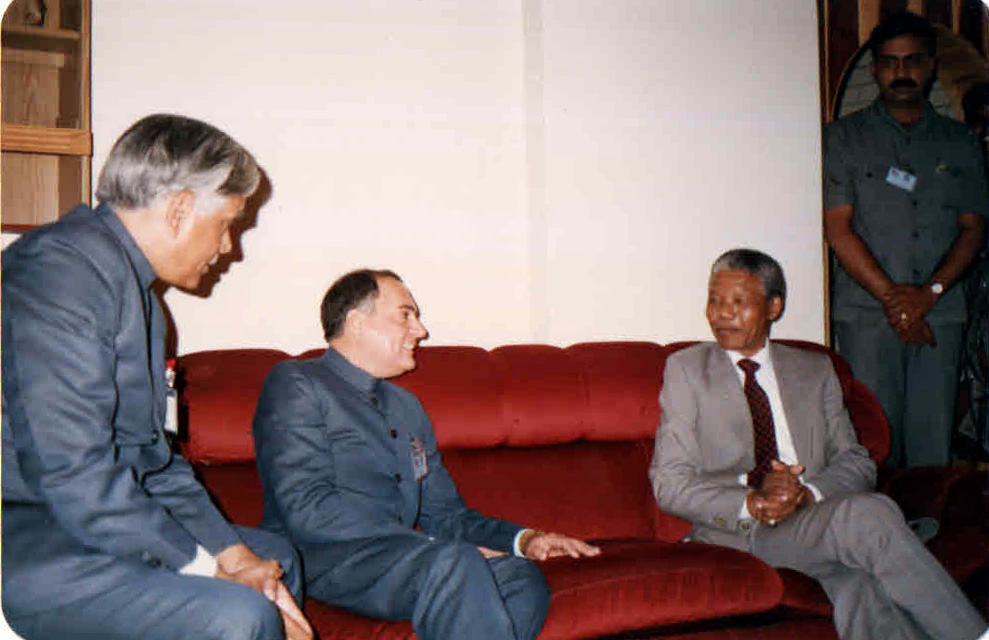It has been 30 long years when former Prime Minister, Rajiv Gandhi, was assassinated in Sriperumbudur by a human bomb. He was a reluctant politician and died when he was barely 46 years old. However, he shall be remembered for laying the foundation of a new India which had a dream to realise.
Amongst a host of measures, he initiated during his single five-year term as the head of the government, was giving the much-required push to the Computerisation programme, which was so essential to take the country towards the 21st century. He brought in reforms which included lowering of voting age from 21 to 18 years, a five-day week in government offices and the ushering in of the tele-communication revolution.
Rajiv was never interested in pursuing a career in politics; he was happy being a family man while working as a pilot with the Indian Airlines. It was his younger brother, Sanjay’s unfortunate death in a plane crash on June 23, 1980, which changed his destiny. Indira Gandhi who was grooming Sanjay to be her heir apparent, asked Rajiv to step in to help her with political work. Thus, Rajiv had no choice but to heed to his mother’s request.
Having done his political apprenticeship under the watchful eyes of his mother, Rajiv did not turn out to be a stereotypical politician. He was trusting or rather over trusting, the reason why many of his personal friends betrayed him after taking full advantage of his generosity.
Rajiv had friends cutting across party lines and his association with Bhaurao Deoras, the younger brother of the then RSS chief, Balasaheb Deoras resulted in many actions that he took, overruling his party’s views. One such matter was the opening of locks in Ayodhya and second was to grant approval to the telecasting of the Ramayana serial. These two acts helped the BJP’s Hindutva politics ultimately, primarily because the Congress could not take advantage of the situation, largely because in his last few years, Rajiv was left defending himself in the infamous Bofors case.
It is also a known fact that Bhaurau Deoras had advised Rajiv to prepone the 1989 Parliamentary polls “since it would not give the Opposition time to re-organise itself”, but Rajiv went by the gut feeling of his associates, who convinced him that due to Panchayati Raj reforms, the Congress would sweep the elections.
This did not happen and even though he had more than 195 seats in 1989, he accepted the people’s verdict against his government and allowed the Opposition parties to form the government led by Vishwanath Pratap Singh. This fact exhibited Rajiv’s firm commitment to democracy.
Unfortunately, after his passing away, his own party, led by his wife, Sonia did not adhere to some of his basic principles. Rajiv had stipulated that in the Congress, the rule of one man one post (with sole exception of the president) was sacrosanct but as was witnessed in the past more than two decades, several functionaries were entrusted with multiple responsibilities.
This non-adherence resulted in the creation of a coterie around Sonia Gandhi which eventually has destroyed the organization. Not many are aware, that had Rajiv lived, several key leaders of the party, who called the shots would have been sacked long time ago. Maybe destiny willed it so.
Another factor which Rajiv upheld was that anyone who had been defeated in a Lok Sabha election, should not be considered for the Rajya Sabha. The logic was that when a person had been rejected by the people, how could he be in the upper House. To P.V. Narasimha Rao’s credit, he honoured this regulation during his tenure. However, after Sonia Gandhi took over, this principle was openly flouted—the initial examples were of Oscar Fernandes, P.M. Sayeid and Shivraj Patil. Many more people were accommodated into the Council of States despite losing the election.
Rajiv was politically naïve in many ways and had himself ignored his mother’s sound advice after taking over as the Congress president following Indira Gandhi’s gruesome assassination in 1984. In the presence of Arun Nehru and Makhan Lal Fotedar, Indira Gandhi had told Rajiv that he should never allow Teji’s (Bachchan) son to join active politics. Similarly, he should not make Madhav Rao Scindia, a part of his Council of Ministers. However, Rajiv made Amitabh, his childhood friend to contest against H.N. Bahuguna from Allahabad and pitted Madhavrao against Atal Bihari Vajpayee from Gwalior. The decisions had their political consequences eventually.
On Sonia’s advice, Rajiv decided to sack Arun Nehru from his government, a decision he conveyed with great reluctance to his one-time confidant. He then decided to reshuffle his ministry and sought Fotedar’s views on the sacking of Nehru. After ascertaining the facts, Fotedar told Rajiv to watch for the ramifications. And these happened soon after and the Bofors scandal broke out affecting Rajiv’s credibility in public perception.
As the Prime Minister, he maintained good relations with even some of his political adversaries. Atal Bihari Vajpayee had been a family friend and when he needed to go abroad for treatment, Rajiv made the necessary arrangements and facilitated his trip by including him in a Parliamentary delegation to New York. It was at his instance, that Bhaurao Deoras reversed the RSS support to the Chandrashekhar-Mulayam Singh Yadav formula for a solution to the Ayodhya issue.
Rajiv shall go down in history as a gentleman Prime Minister whose end came too early. Between us.
Rajiv, a PM ahead of his times
- Advertisement -

